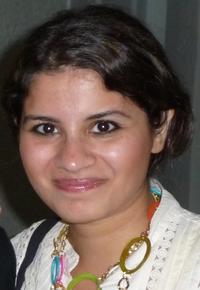We are delighted to announce the recipients of three fully funded doctoral scholarships in American History or Politics at Oxford. Gwion Wyn Jones is the recipient of the Oxford-Edward Orsborn Scholarship in American History, Nur Laiq of an Oxford-RAI Scholarship in American History, and Ashley Wright of an Oxford-RAI Scholarship in American Politics. They explain the doctoral projects they will be pursuing at Oxford below.
Gwion Wyn Jones
With the support of the Oxford-Edward Orsborn Scholarship in American History I will be researching the efforts of Christian missionaries to ‘Americanise’ Natives in the West and freedpeople in the South during the Reconstruction Era – a comparative approach inspired by Elliot West’s vision of a ‘Greater Reconstruction’. Through their writings and preaching, missionaries crafted prejudicial racial assumptions that conflated non-Christians with ‘savages’, and they often fashioned such beliefs by contrasting the Native with the African American culturally, biologically, and temperamentally. Following the Civil War, missionaries ultimately used these prejudices to design bespoke ‘civilising strategies’ aimed at integrating both the newly-freed slaves and the Indian nations of the West into the predominantly white Republic –a dimension of the 'Greater Reconstruction' yet to be fully acknowledged by historians. Indeed, having secured victory upon the battlefield, the federal government used organisations such as the American Missionary Association to win the peace by creating a homogenous citizenship that, at least nominally, acknowledged the Republic’s multiracial complexion. Determining the political role of missionary organisations in Reconstruction, then, would not only better our understanding of how non-white citizenship was conceived after the war, but would also nuance our appraisals of the expansion of federal power throughout the era.

Nur Laiq
From the Clinton Paradox to the Democratic Paradox: Examining Divisions in the Legislative Debates of the 1990s
For nearly three decades, conventional historiographical wisdom has maintained that Bill Clinton’s victories in 1992 and 1996 created a durable neoliberal political order. It suggests that Clinton’s third way politics brought to an end the fierce debates that had raged since the 1970s over the identity of the Democratic Party in favor of a centrist consensus. Yet, Trump’s victory over Hilary Clinton and the parallel rise of Sanders and Warren suggest that the “neoliberal order” of the 1990s was more complex. Consequently, can the third way politics of the 1990s continue to be regarded as a true settlement? Are the left roots deeper than existing scholarship suggests? Clinton’s electoral successes led to the belief that a consensus among political elites had been achieved on pivotal topics in American politics – free trade, healthcare, welfare, and financial deregulation. I propose to examine these divisions and debates through a case study of the signature acts of legislation that defined these four issues. Each bill highlights different aspects of this contestation over both of Clinton’s two terms. In tracing these aspects, I will chart how the macro-ideas and micro-vocabulary of both sides interacted and developed, and how the contestation over policy shaped and defined the Party.

Ashley Wright
The US, as one of the world’s largest and oldest democracies, has long expressed an interest in the state of democracy abroad, from Woodrow Wilson advocating “making the world safe for democracy” to the Marshall Plan, which sought to “permit the emergence of political and social conditions in which free institutions can exist” in postwar Europe. For decades, consequently, the US has been devoting a significant portion of the American foreign aid budget into bolstering democracy, good governance, and civil society around the world. However, these efforts are spread across multiple federal agencies (a phenomenon known as complex aid architecture). This begs the question of whether inter-agency politics blunts the US aid agenda through duplication and overlap. I examine whether the US Department of State and Agency for International Development are effectively cancelling out other’s democracy aid or complementing each other and contributing toward stronger, democratic institutions in recipients.